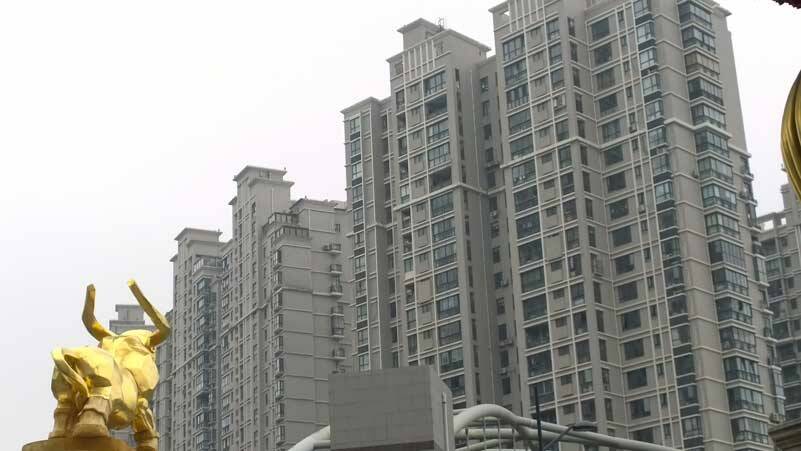By Morf Morford
Tacoma Daily Index
Many business and financial pages have described the financial implosion of China’s Evergrande as their
“Lehman Brothers” collapse (in 2008).
The financial evaporation of Lehman Brothers was far from a cause of the Great Recession, and it was also far from a final result. It was one of all too many bankruptcies of 2008-09.
But there are some similarities. Evergrande, like Lehman Brothers, seemed solid and unshakable, until it suddenly wasn’t.
Evergrande is — or was — the second-largest real estate company in China. Just a couple years ago, it was the world’s most valuable real estate stock.
Like Lehman Brothers, the Evergrande story is bigger than just one company or even industry. Evergrande’s collapse is really about China’s unsustainable model of economic growth, which has relied on endless investment and a mad, debt-fueled development frenzy in recent years.
Like the housing bubble of 2008-09, investors and companies imagined (and based their business models on) infinite growth and expansion.
Not only is such a model unsustainable, it is literally mathematically impossible. No growth, or at least no healthy growth, is infinite (cancer, on the other hand, is essentially infinite, as long as it has host tissue, but cancer, I would hope, is not anyone’s business model).
And no business, or industry, stands alone.
Royal Bank of Canada’s BlueBay Asset Management are among asset managers exposed. One of the largest financial institutions in the world, HSBC Holdings pulled out their Evergrande positions in September and August. Swiss bank UBS currently holds Evergrande debt exposure totalling about $283 million across multiple portfolios.
There are many more investors large and small on the verge of the financial black hole that is – or was – Evergrande.
The lesson from Lehman Brothers and Evergrande could not be clearer – or more frightening; just as no company achieves success alone, no company sinks alone.
Like our economy, China’s economic growth in recent years has been powered in large part by its relentlessly roaring real estate market.
For China’s economy, the real estate industry, directly and indirectly, accounts for as much as 29 percent of China’s entire GDP.
And, like our economy (now and in 2008), much of that “growth” is built on a foundation of debt – massive debt.
Evergrande (like all too many US companies – especially in real estate) amassed more than $300 billion in debt, to its banks, its bondholders, its suppliers, and its customers, many of whom pre-bought homes months, even years, before they were built.
I don’t know about China, but I do know of cases here in the USA where the real estate invested in was never built.
And, as in China, much of it that was built was never occupied.
But in China, as with almost everything, the scale is mind-boggling.
We may have near-empty condo units, but in China, around 20% of China’s total housing stock now sits unoccupied.
According to some reliable sources, there is now enough vacant property in China to house more than 90 million people. That’s enough empty homes to fit almost the entire population of Canada and France – combined. Or all of Germany (a shade under 84 million in 2020).
This is no surprise for anyone who has been watching the Chinese economy – their “ghost cities” – entire, vast, and empty urban landscapes have become legendary.
Like the pandemic, anyone who was paying attention saw this coming years ago.
Way back in 2017, President Xi Jinping warned about this in a speech to the 19th Party Congress. He said, “Houses are built to be inhabited, not for speculation.”
Like many businesses, Evergrande was founded (in 1996)) and led by a charismatic and convincing leader – Xu Jiayin, who not that long ago was the richest man in China.
And like many businesses from 2008-09, investors and others convinced themselves that Evergrande was too big and too connected to fail.
Like the collapse of Lehman Brothers, the economic demise of Evergrande is far from the end.
China’s economic turmoil will not stay within its borders.
And, like our Great Recession of 2008-09, economic pain won’t be limited to real estate.
There are warnings, contradictions and maybe even lessons to be learned from the Evergrande fiasco.
One irony is that in the first couple decades of the 21st century, the trajectory of global capitalism has come to hinge on the economic development of China – a decidedly un-capitalist, one-party Communist system.
According to the IMF, China contributed 28 per cent of GDP growth worldwide from 2013 to 2018 — more than twice the share of the US.
Or consider this, in many Chinese cities, real estate accounts for about 17 percent of employment. Real estate accounts for about 80 percent of household wealth in China, versus a share of around 30 percent in the US.
The biggest problem with Evergrande’s debt problem is how contagious it is; how many contractors, investors and other stakeholders will be financially stranded by Evergrande?
Not long ago Evergrande had 200,000 employees. What about their economic network and the multitude of businesses that depended on their patronage?
Like America, China has had a massive migration to major cities. To a large degree, in both nations recently, possibly for different reasons, this has been reversing.
And both nations are seeing a decline, only expected to increase, in the birth rate.
These are not good signs for a real estate based economy.
Rising real estate prices are only good for those who have existing equity. For renters or for the homeless, and for more and more young families, high (and higher) real estate prices are more of an obstacle than anything else.
As with Lehman Brothers in 2008, in many ways, this party is just beginning.
And don’t expect a smooth landing.
The global economy, as we have seen in our supply chain problems, impact us all.






